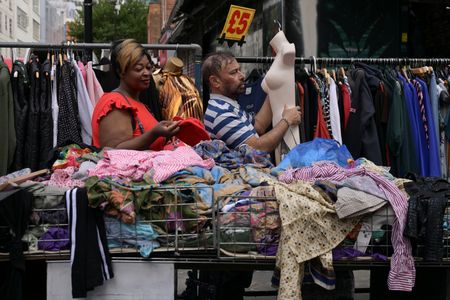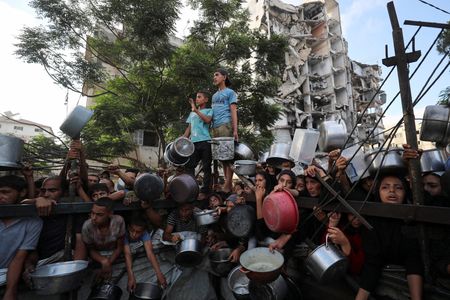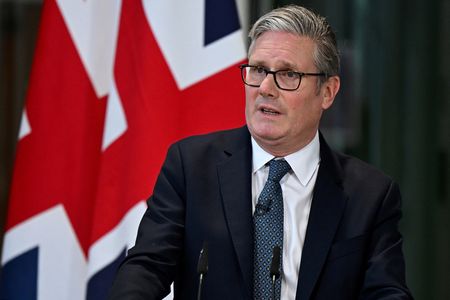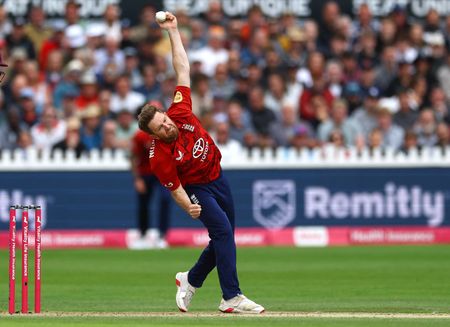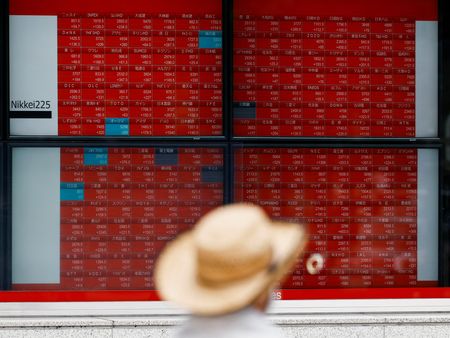By David Milliken
LONDON (Reuters) -British shoppers spent more freely last month as unusually hot weather boosted demand for fans and summer clothing after weak sales growth in May, though part of the increase reflected higher food prices, industry data showed on Tuesday.
The British Retail Consortium – whose members are mostly larger stores – said spending was 3.1% higher in cash terms than a year earlier, up from a 1.0% annual increase in May and the second-biggest rise this year.
“The soaring temperatures increased sales of electric fans while sports and leisure equipment was boosted by both the weather and the start of Wimbledon (tennis tournament),” BRC Chief Executive Helen Dickinson said.
England experienced its hottest June since detailed records began in 1884, while average temperatures across the whole of the United Kingdom were the second-highest on record.
June’s spending growth will bring some cheer for retailers after May’s official data – which covers a broader range of stores than the BRC figures – showed the biggest monthly drop in sales volumes since December 2023.
Official data published last week showed the economy as a whole shrank unexpectedly in May, adding to pressures on finance minister Rachel Reeves.
The BRC said higher retail spending partly reflected higher food prices. Spending at supermarkets rose by an annual 4.1% compared with a 2.2% rise for non-food stores.
Food prices rose 3.7% in the year to June, the biggest increase since the 12 months to March 2024, in contrast to a 1.2% drop in non-food prices.
“Sales growth continues to be predominately driven by inflation with volumes under sustained pressure,” said Sarah Bradbury, chief executive of the Institute of Grocery Distribution, which provides data to the BRC.
Separate figures from Barclays showed that overall consumer spending dropped by 0.1% year-on-year in June compared with a 1.0% rise in May. The bank’s debit and credit card data showed weaker retail spending growth than the BRC numbers.
Bright spots included purchases of furniture – reflecting a surge in property sales earlier this year – and sales of sunscreen and hay fever medication.
“Consumers are remaining cautious and maintaining savings buffers,” Barclays’ Chief UK Economist Jack Meaning said. “We expect this to lead to limited GDP growth for the remainder of this year, before falling interest rates and a stronger sense of certainty drive a return to growth next year.”
(Reporting by David MillikenEditing by William Schomberg)

